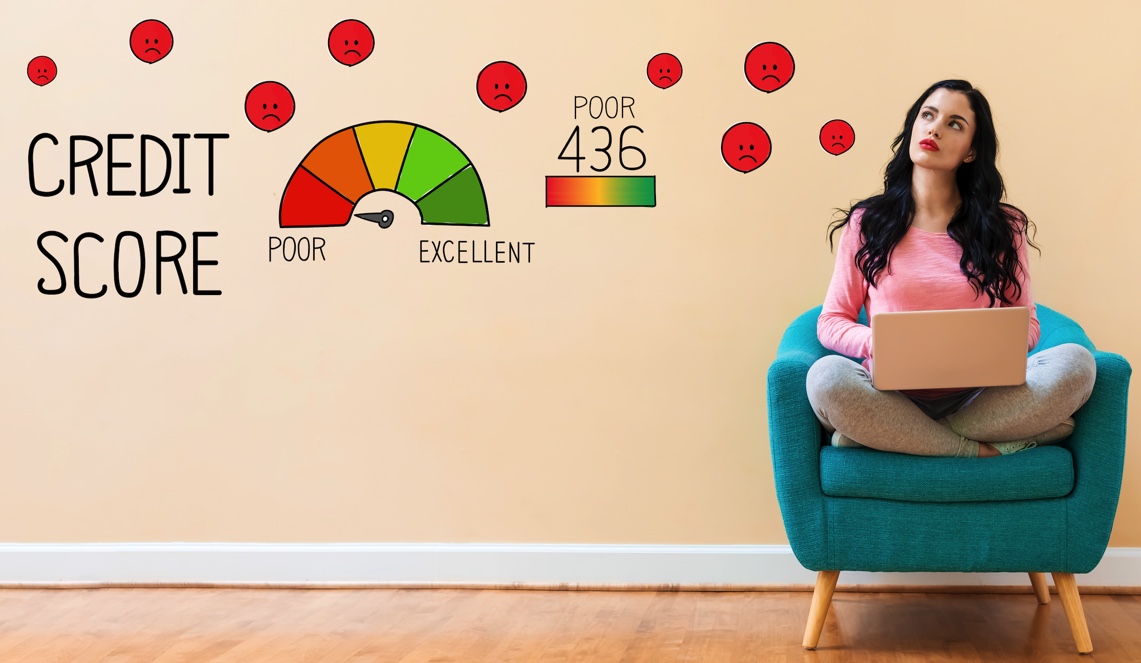
FOUNDATION
Ways to Obtain Business Financing with a Poor Credit Score
August 18, 2021 | Resources
In a past blog post, we discussed “Building a Good Business Credit Score,” but what happens if you start a business with poor personal credit? While we can’t change the past, we can take steps in the present that will set us up for a successful future.
What Is My Credit Score?
The first step is maybe the scariest – find out your credit score and what options are available based on that number. A credit score tells a bank or financial institution how reliable you are based on past experiences.
Don’t worry if your credit score isn’t where you want it to be now, there are ways to build your credit and lending options.
How Can I Improve My Credit Score?
Here are five ways to turn your credit score frown upside down explains Erica Sandberg, a consumer finance expert.
- Utilize Credit Options – This may seem counterintuitive. However, when one doesn’t have a credit history, they are considered a thin credit file. A thin credit file is problematic because when someone visits the bank looking for financing there is not enough information to determine their viability as an investment. Are you a thin credit file? If so, start small and maybe investigate a secured credit card account. Don’t sign up for every option for the sake of beefing your credit inventory. Take baby steps.
- Double Check the Credit Score Report – Mistakes are possible. If you spot an inaccuracy, notify the credit reporting agency immediately. This error could immensely impact the credit score number.
- Add Recurring Monthly Payments to Your Credit Card – If you are already paying your utilities and phone bill on time, make sure you get the credit you deserve. On-time payments are one of the keys to boosting up your credit score.
- Settle Outside Debts First – Pay collection agencies and any back government taxes first. Once those are off the books, you will see your score instantly improve. Visit Sandberg’s blog “How to Repair Credit in 5 Fast Steps.”
- Get Back on Track – The most important thing you can do is pay your bills every cycle. Consistency is key. Yes, you will incur a late fee if you are past the due date, and anything over 30 days will result in a delinquent note on your account.
How Can I Obtain Capital with Poor Credit?
Unfortunately, minority business owners (non-Caucasian) are more likely to struggle with poor credit due to historical racism and unfair algorithms. Read “Ways to Turn Challenge into Opportunity for Black Women Entrepreneurs” for more information.
Here is a list of additional resources for those seeking business financing with low personal credit scores.
- Microloans from the U.S. Small Business Administration (SBA)– The SBA provides funds to non-profit community-based organizations with experience in lending as well as technical assistance. These intermediaries administer the Microloan program for eligible borrowers. To find an authorized microlender near you, contact your local SBA District Office.
- Credit.org– A non-profit organization with a mission to provide consumers with the financial education and debt relief options needed to ensure they are on the right path to financial freedom. Note – the organization does not loan money.
- National Minority Supplier Development Council – A non-profit organization that provides a direct link between corporate America and Asian, Black, Hispanic, and Native American-owned businesses. There are benefits and opportunities to being recognized as a certified minority business owner.
- Kiva – A non-profit organization that supports entrepreneurs in the U.S. with interest-free loans which are crowdfunded by lenders across the globe. Rather than assessing credit history and financial statements, Kiva U.S. relies on trust networks as a measure of creditworthiness.
- BlueVine – A fintech company, BlueVine has an invoice factoring solution that provides cash for outstanding invoices today.
Remember your credit score is not a reflection of who you are as a person or an entrepreneur. It is a fluid number and one that can improve. Don’t let the number on the report discourage you from making your entrepreneurial dreams a reality.
For more learnings on this topic, check out our blog, “A Line, a Card, or Both – Which Credit is Best for Your Business?”
Sign Up For Our Newsletter

